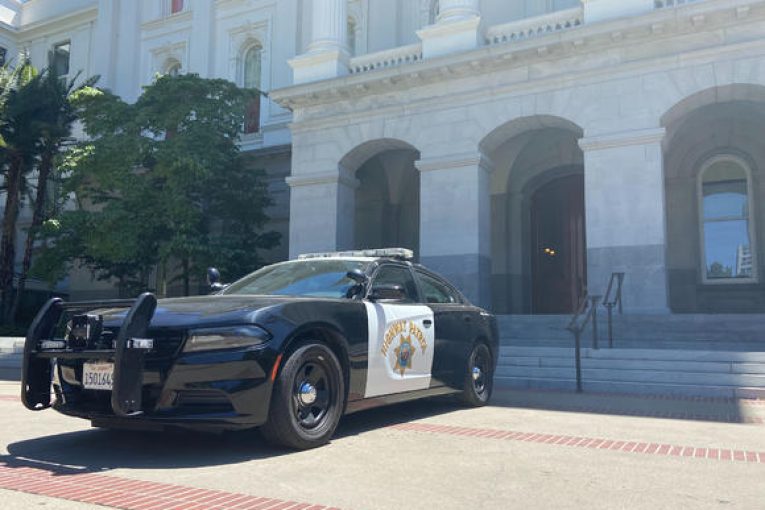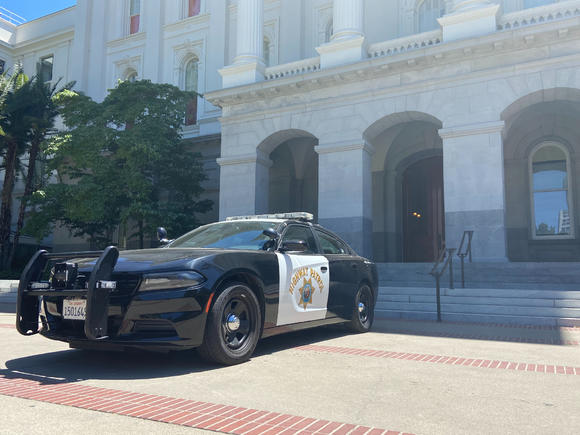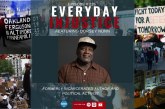

By Robert J. Hansen
Nothing symbolizes and embodies American freedom like the automobile and although driving is not a Constitutionally protected right, unimpeded mobility is.
While there is a responsibility to be licensed and follow traffic laws, driving is essential to economic well-being and upward mobility and, therefore, a fundamental right under the Ninth Amendment, not a privilege.
No tool is more vital to the average American’s ability to be self-sufficient and their pursuit of happiness.
If law enforcement continues to blatantly violate American’s rights and liberties protected by the Constitution, there may not be any political will to retain our mobility when automated vehicles and green cities arrive.
The Supreme Court referenced American’s right to mobility in its opinion in Scott v. Sanford (1857), in which the Court’s opinion made mention of American’s right to unimpeded mobility, that officers would not have been able to stop Scott had he been white.
The Supreme Court ruled that the fundamental clause under the Ninth Amendment protected “the right to enter any other State whenever they [citizens] pleased, singly or in companies, without pass or passport, and without obstruction, to sojourn there as long as they pleased, to go where they pleased at any hour of the day or night without molestation.”
African-Americans explicitly could not, according to the Court.
American mobility has been impeded and restricted since the Supreme Court’s ruling in Carroll v. United States (1925), which essentially stripped Americans of their Fourth Amendment rights.
The right to drive and the car gave Black Americans the ability to leave the south, women a chance to leave their homes and husbands, and immigrants to find work anywhere throughout this county.
Carroll v. Unites States has established and set a precedent for the subsequent rulings despite repealing Prohibition in 1933 and fueled mass incarceration in the United States.
It’s not a coincidence that women, black people, immigrants and poor people are the same groups still fighting for equal treatment.
American’s right to unimpeded mobility needs restoring before the personal mobility of low-income urban and rural communities is further impeded and restricted than already are.
Mode shift aims to make city residents rely on public transportation, bikes, and green cities with ride-sharing.
Traffic enforcement laws should no longer be allowed to invalidate and ignore Fourth and Ninth Amendment rights of privacy, unreasonable searches, and mobility unimpeded.
Americans will not think anything is wrong when city governments try to cram everyone on a bus, in their apartment, or make them walk.
Even when including San Francisco Bay Area’s public transportation figures, a statistical outlier, around five percent of America’s labor force relies on public transportation to commute to work.
America’s labor force is roughly 63 percent of its total population, which is about 160 million people, according to Census data. Almost 120 million drive alone to work every day, with another 14 million carpooling.
Public transportation will not provide the utility to double that five percent, let alone offer transportation for half the country anytime soon.
If there were any way to be more efficient than private vehicles, American ingenuity would have figured it out. It has not thus far.
The American highway system was the successor to the transcontinental railroad and the country’s primary mode of personal travel. It has provided personal mobility to every citizen and is responsible for creating the most productive economy in the world for over 120 years.
Was there another way America could have become the world leader in GDP without nearly everyone going to work, in their car, at their own pace and schedule?
On sheer mass alone, the US will not allow for the green city model to work everywhere in this country. It is not Japan or any European country.
United States is the single largest market globally, which provided the basis for the rapid expansion of American industry and the point where the U.S. by the 1890s had the most powerful economy on the planet.
No tool or right has evened the playing field for those in poverty, minorities, women and immigrants like the automobile and American’s right to drive.
The development of the transcontinental railroad was the outstanding achievement that propelled the United States through the Industrial Revolution to become the economic powerhouse it is today.
Because the railroad connected east to west, commerce was then possible on a mass scale.
“The Constitution provided the legal framework for a single national market for trade goods; the transcontinental railroad provided the physical framework,” Henry W. Brands, Texas University History department chair said.
The automobile and the mobility it provides individuals is second to none and cannot be replaced or surrendered if American’ are to continue their pursuit of happiness.
Unimpeded mobility is not a privilege. It is a right, and so is Americans’ right to drive without law enforcement impediment.







I need more coffee, my head is spinning. I’m “driving” to Starbucks now.
Here, Keith O, I tend to agree… but will go off to get ‘breakfast fixings’… coffee I have @ home… (so, there, we differ… no problem)
I opine that driving (particularly a single occupant, motor vehicle) is definitely not a right, but is indeed a privilege… and a privilege that should not be arbitrarily constrained… perhaps a nuance, without a difference, but I see a big difference…
I have no problems limiting driving cars due to past crash/DUI behavior, other physical impairment, etc. And, I don’t believe everyone should be “issued” a car (which goes toward “rights”)… I believe acquiring, operating, maintaining a ‘car’ is a ‘privilege’ that carries responsibilities, and not a “right”… it’s not like food, potable water availability, needful medical care… those latter gets much closer to “rights”…
For my entire life, driving has literally (officially) been described as a “privilege”, not a “right”.
Though I suppose it’s actually a “right”, if you follow the laws required to do so. Seems to me that some want to do away with those laws (which apply to everyone who drives), as well.
Fascinating… I have seen no evidence of that… I doubt it… but if that’s your experience/perspective, I will not dispute… but it is NOT in my experience/perception… so, will not agree…
It’s implied in the title, and in this statement:
It’s also been implied on the Vanguard a number of times (e.g., regarding not enforcing registration requirements, etc.).
In fact, officers are required to “impede”, when someone is breaking the law. It’s a fundamental aspect of safety and a functioning society.
The VG and pieces therein, are not “real”… in and of themselves… that was, and is, my point…
Well, they’re “really” doing this things like this in Berkeley (and Pittsburgh, I believe).
And pushing for it in a lot of other places, including Davis.
Under the guise that cops will then randomly shoot people of color, as a result. (And that skin color was their entire reason for the stop in the first place.)
It’s all part of the “lets do away with laws” that result in disproportionate outcomes. In other words, “social justice”.
Interesting the things you infer. I am not implying that we have no traffic laws or even enforcement of them. I am saying that driving is necessary to be successful in this country.
Traffic enforcement needs to be reimagined.
https://original.newsbreak.com/@robert-j-hansen-1587368/2501132706817-how-traffic-enforcement-is-being-reimagined-in-the-us?s=influencer
That entire article (which you authored) reinforces exactly what I said.
How do you go about ensuring that people follow laws, if those laws aren’t enforced?
And, what are the consequences of that (e.g., in terms of ensuring that cars are being checked for emissions, are insured, that ownership can be tracked, that safety equipment such as lights are functioning, etc.)?
For that matter, how many cars are used in other crimes – for which ownership is used to identify the possible perpetrator (or connection to, thereof)?
Why would anyone follow laws that are not enforced?
Laws that are not or cannot be enforced will be increasingly violated until the result is some kind of crisis. It seems there is no perceived crisis because there is no prevailing attitude to deal with it. We even refer to traffic “accidents” instead of avoidable collisions. I guess most of us feel like we want the right to violate whichever rule pertains to our situation in traffic and will continue to resist methods of impartial enforcement because if it’s impartial, it will impact everyone of us. The technology exists but nobody wants to implement it. So we keep letting it fall on individual officers which is ineffective, inefficient and perpetuates continued wholesale violations of traffic laws and even norms of behavior on the road. That’s the politics we prefer.
Thank you! Exactly. There are a few traffic laws that work when enforced properly to reduce traffic fatalities and those are needed as well as appropriate punishment for offenders. The rest do not and need to not be used by law enforcement to violate Constitutional rights and harm low-income and Black and Brown communities.
For the rest you clearly too obtuse to understand my point, I never said we don’t need traffic enforcement, we need to reimagine it and do it properly
Not sure what technology you’re referring to, but if it’s something that can be ignored in the mail – you can be sure that some will do so.
In the meantime, I would fully-expect anyone to have a boatload of problems (for themselves, and others) if they choose to forgo registration, smog, insurance, and safety equipment requirements.
And hey – if they can’t afford those, then sorry – don’t drive. A decision to do so anyway impacts others. Skin color is not a valid reason to be excused from those requirements. As a general rule, skin color is NEVER a valid reason to be excused from laws which apply to everyone.
There’s ultimately two ways to enforce – “in person”, or by taking someone’s vehicle.
And if you can’t meet those requirements, “reimagine” another way to transport yourself. Which many are already doing, regardless. Sometimes, subsidized by an employer.
Ron, “registration, smog, insurance, and safety equipment requirements” cannot be avoided as easily as breaking the rules of the road because they are mostly enforceable through administrative channels that are impartial. I’m talking moving violations that actually endanger people. Technology exists to make moving violations (more important than administrative rules) impartially enforceable. Driver monitoring systems combined with onboard sensors can log and report driver behavior. “OMG, that’s the end of our freedom!” But I would feel a lot freer if people were monitored and accountable for their behavior behind the wheel. The technology has existed for many years, but too many nervous Nancys are freaked out about it. It could literally save thousands of lives every year, but I guess we’d rather be free and dead than accountable and alive. You would have a little meter on your dashboard, like a taxi meter, that would run your insurance bill up and down depending on how often you change lanes without signaling while driving 30 miles over the speed limit, for example. No armed police involved. Yeah, instant accountability and means tested against your latest tax return.
I don’t understand. Such as what ‘channels’ ? I’ve noticed an explosion of illegal windshield and front-side window tinting – very dangerous – and completely unenforced during Covid-19 for some reason. Is anything enforced anymore? I haven’t seen a cop pull anybody over for a traffic violation in this town in years. What administrative channels would enforce this — automated tint sensors?
Yeah, no one is going to figure out, first thing out the door, how to hack into those systems. And this is at great cost for 100’s of millions of car, many of which would have to be phased out — and scrapping cars is very resource intensive and this terrible for the environment. All that so someone doesn’t get pulled over ?
Thank you, now I don’t have to say it.
I’m sure marginalized communities wouldn’t mind their every move being monitored in the least!
I’d be freaked out about it, too. And stop calling me Nancy.
You have a strange definition of “alive”, Mr. Orwell.
Or as you plunge off a bridge in your knickers after 16 drinks, for example.
The goal, for some reason.
That wouldn’t end up disproportionately effecting marginalized communities 😐 . Not at all, not at all, not in the least!
Yeah, whatever could go wrong with that? LOL
So there is no more confusion or misunderstanding, which there seems to be plenty of, anyone is welcome to call me to have this discussion.
(916) 633-8008
This is clearly not a constructive medium for such a complex topic.
As always, thanks for reading.
You noticed. At any rate, I’m all for automated driver monitoring and strong administrative enforcement that is effective but doesn’t depend on armed officers on patrol.
But clearly is a constructive medium for less complex issues like policing, incarceration, racial issues, gender issues, transgender issues, growth limits, local development . . . simpler stuff like that 😐
Many countries have better public transportation than the USA. Restricting car access is a stick. Improving public transport is a carrot. As an example, if there was a direct bus ride downtown from near my house I’d stop opposing parking meters. As it is now my five minute drive takes 45 minutes by bus and requires a transfer at the University.
There is. It’s called Uber.
This is different than what I envisioned, but would have questions about it. For example, for someone who simply doesn’t pay for insurance, registration, smog (or submit tax returns). Would the car not operate, then?
And, how long would it take for everyone to have this type of car? Given that those who routinely break the law are probably not out shopping for a Tesla?
If cars become fully automated (self-driving), that may also be similar to what you’re referring to. Probably would end road rage, at least. Then again, what if criminals learn how to manipulate these cars, to make you stop (and rob you, for example)?
Ultimately, I’m not a big believer in technology “overcoming” criminal behavior. If anything, it sometimes makes it easier for them.
Unless it’s used to identify them, and remove them from society.
Part of the reason I didn’t envision this proposed type of solution is because of previous articles, which merely state that police should stop enforcing car registration, for example. Simply because some dummy might then do something to get themselves shot, or try to escape and kill someone else with a 2-ton vehicle. They offered no solution to ensure that these folks have insurance, smog checks, that the car is trackable to an owner, etc. Already, these types of issues create a problem for others.
If Robert is talking about the same type of thing that you are, I’d find a more detailed article interesting. And would view it as more of a learning opportunity, rather than differences in ideology.
Of course, of these two outcomes, I’m a lot more concerned about the latter, rather than the former. For that reason alone, I’m interested in some way to disable vehicles (while noting that this also creates security concerns, if that technology falls into the hands of n’er do-wells).
That’s the end of my rant (in this article as well), this evening. Two rants in a row.
I think my anger toward progressives has been increasing lately, and I can’t get David to respond to any of my comments at all, no matter how outrageous I become. Which is both a blessing and a curse? 🙂
Probably more of the former.